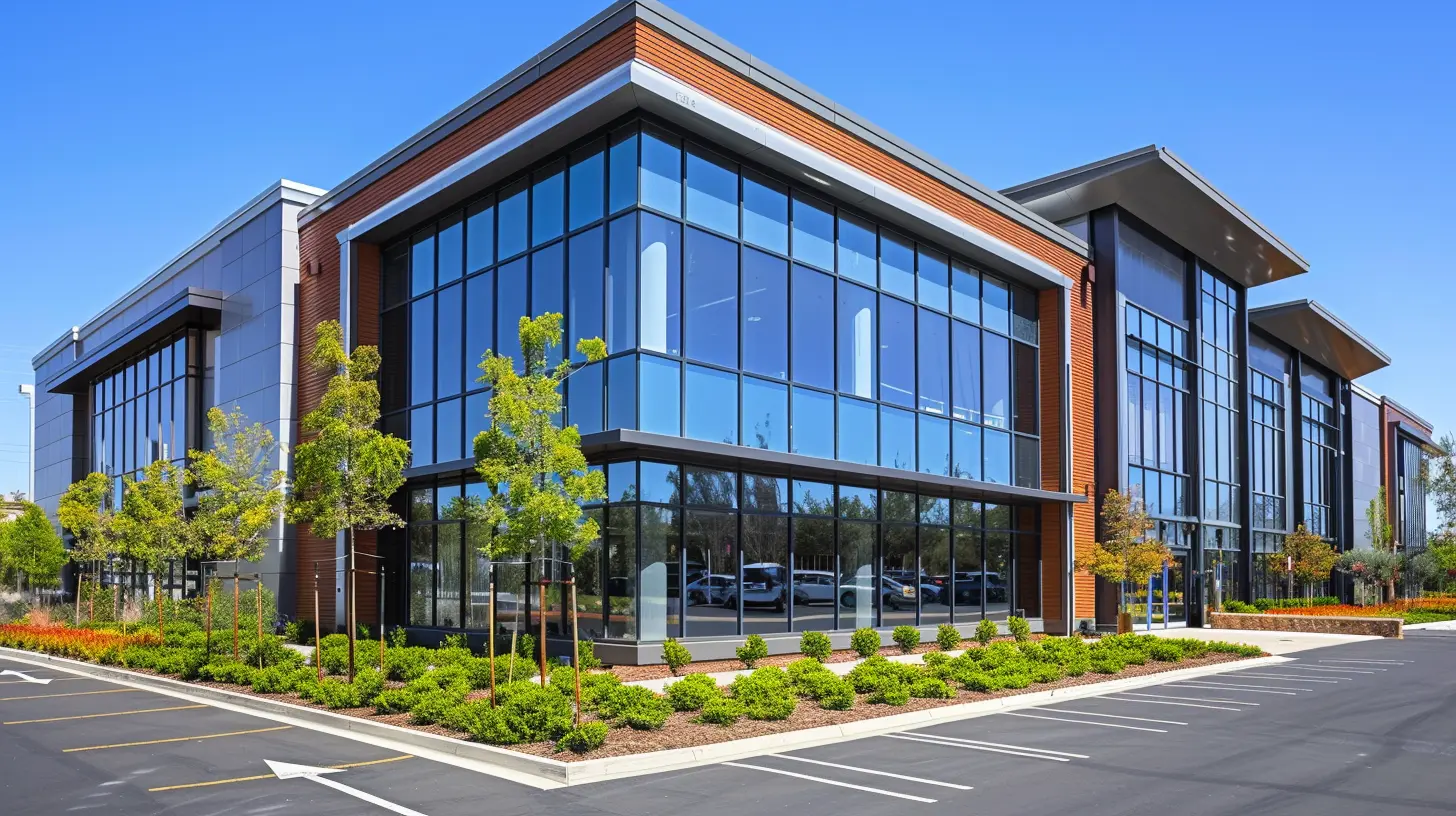Understanding Triple-Net Leases in Commercial Real Estate
17 September 2025
If you've ever dipped your toes into the world of commercial real estate, you've probably stumbled across the term “Triple-Net Lease” or “NNN Lease.” At first glance, it might just look like real-estate jargon — but trust me, it’s so much more than that.
Triple-net leases are one of those sneaky-important things that can make or break an investment deal. Whether you're a budding investor, a seasoned property owner, or even a curious entrepreneur thinking about leasing commercial space, understanding how NNN leases work can save you a ton of stress (and money!).
So, let’s unpack this little real estate puzzle together — with zero fluff, just the real deal.
What is a Triple-Net Lease, Really?
Alright, let's start with the basics. A Triple-Net Lease, often called an NNN Lease, is a type of lease agreement commonly used in commercial real estate. It means the tenant, not the landlord, is responsible for three big expenses — property taxes, insurance, and maintenance (aka the “three nets”).Think of it like renting a car, but you also handle the oil changes, pay for insurance, and cover any repairs that come up. Sounds a bit intense, right? But for certain investors and tenants, it actually works out beautifully.
Breaking Down the “Triple” in Triple-Net
Let’s make it super simple — here's what the tenant takes care of:- 🏛️ Property Taxes: Any local or state taxes associated with the property.
- 🔒 Insurance: This includes building insurance and liability coverage.
- 🔧 Maintenance: Everything from repairing a leaky roof to mowing the lawn.
Meanwhile, the landlord collects rent and enjoys a pretty hands-off investment. Sounds chill, doesn’t it?
Why Are Triple-Net Leases So Popular?
Great question! There are actually a few solid reasons why NNN leases are loved by landlords and investors alike.1. 🏖️ Passive Income with Fewer Headaches
If you're a landlord who doesn’t want day-to-day responsibilities, this lease structure is a dream. You're not dealing with clogged drains, broken HVAC systems, or emergency repairs at 3 AM. You just collect the check.2. 📈 Predictable Cash Flow
Since tenants are covering most operating costs, your income becomes more stable and predictable. That’s gold in the real estate world.3. 💸 Lower Risk for Landlords
With the tenant covering all those expenses, you’re less exposed to surprises. Imagine having a 10-year tenant who pays rent AND handles everything else. That’s sweet, right?
But What’s in It for Tenants?
You might be thinking, “Why would any tenant agree to this?” Good point! As it turns out, there are some cool perks on the tenant side too.1. 🧠 More Control Over the Property
Want to repaint the place, add new signage, or upgrade the HVAC system? In many triple-net arrangements, you have more freedom than you would with a traditional lease. You're almost running the property like it's yours.2. 🤝 Long-Term Stability
NNN leases often run 10 to 25 years with options to renew. This gives business owners long-term security in a location without the risk of rent skyrocketing every year.3. 📍 Prime Locations
Many NNN lease properties are in prime commercial areas (think fast food chains, gas stations, pharmacies). Being in a high-traffic location can really drive sales.Who Typically Signs a Triple-Net Lease?
You’ve probably seen dozens of triple-net properties today without even knowing it. National chains and franchises love this lease model.Brands like:
- Starbucks
- Walgreens
- Dollar General
- Chick-fil-A
These companies often sign NNN leases because they get to customize the space, get great locations, and lock down long-term use.
From the landlord side, it’s usually someone looking for a low-maintenance, steady investment. This might be a private investor, a real estate fund, or even a retired couple who owns a strip mall.
A Quick Comparison: NNN vs. Other Lease Types
Let’s compare triple-net leases to some other common types so things are crystal clear:| Lease Type | Who Pays Taxes? | Who Pays Insurance? | Who Pays Maintenance? |
|--------------------|------------------|----------------------|------------------------|
| Gross Lease | Landlord | Landlord | Landlord |
| Modified Gross | Shared | Shared | Shared |
| Triple-Net (NNN) | Tenant | Tenant | Tenant |
See the difference? With NNN leases, the tenant takes on a lot more — but also gains more predictability and control.
Risks and Pitfalls to Watch Out For
No lease type is perfect, and triple-net leases are no exception. While they have their perks, there are some curveballs you should look out for.1. 🧾 Unexpected Maintenance Costs
If you’re the tenant, you might get hit with some pricey repairs. Think roof replacements, HVAC issues, or parking lot resurfacing.2. 🏚️ Property Value Decline
If the area goes south, property values can drop — even with a long-term tenant. That affects your investment’s resale potential.3. 💔 Tenant Default
What if your tenant goes out of business or stops paying rent? You’re stuck with an empty property and might have to pick up those “three nets” yourself.How to Evaluate a Good NNN Investment
Thinking of buying an NNN property? Here are some things to keep on your radar.🛒 Tenant Quality
How reliable is the tenant? Publicly traded companies with strong credit are much safer bets than a brand-new mom-and-pop shop.📍 Location
You know the deal — location, location, location. A great tenant in a bad neighborhood is still risky. Look for accessible, high-traffic spots.⌛ Lease Duration
Longer leases = more stability. Also check if there are built-in rent increases (aka “escalations”) to keep up with inflation.🧑💼 Lease Terms
Not all NNN leases are created equal. Read the fine print. Is it truly triple-net? Or are there hidden exceptions?Real-Life Example: A Look Under the Hood
Let’s imagine you're buying a property leased to a national pharmacy chain on a 20-year NNN lease.- Monthly rent: $12,000
- Tenant pays all property taxes, insurance, and maintenance
- Tenant: High-credit company with a track record of on-time payments
That’s $144,000 a year in rent without worrying about extra costs. Multiply that by 20 years and… yeah, that’s a pretty smooth ride (as long as the tenant keeps paying).
Now compare that to a traditional lease:
- Monthly rent: $14,000 (a bit higher)
- You, the landlord, pay for taxes ($3K/year), insurance ($1.5K/year), and maintenance (varies)
Suddenly, your “higher rent” brings more stress and less net income.
Tips for Tenants Entering a Triple-Net Lease
If you’re on the tenant side, you’re essentially agreeing to become a part-time landlord. Here’s how to survive:- Get a property inspection before signing — know what repairs are coming.
- Negotiate a cap on maintenance expenses — especially for big-ticket items.
- Understand local tax changes — your property tax bill could increase.
Final Thoughts: Is a Triple-Net Lease Right for You?
Triple-net leases aren’t for everyone — but they’re perfect for the right kind of investor or business owner.If you’re an investor looking for stable, passive income with minimal landlord duties, NNN properties are worth a hard look.
If you’re a tenant who wants long-term control and isn’t afraid of managing a building’s upkeep, this lease type could give your business a solid home base.
Like every real estate decision, it comes down to doing your homework, planning ahead, and understanding the fine print.
After all, it’s not just about the rent. It’s about control, risk, and return — and knowing which side of the fence you want to be on.
Frequently Asked Questions
❓ Are NNN leases only for big companies?
Not at all. While national brands dominate the NNN scene, small businesses and franchises also sign these leases — especially when they want long-term control of a location.❓ Can I finance a property with a triple-net lease?
Absolutely. In fact, many lenders see NNN properties as safer investments, especially when there’s a solid tenant with a long-term lease in place.❓ What happens when the lease ends?
Good question. Sometimes tenants renew; other times, they move out. That’s why it’s key to know your property’s location value and tenant history.all images in this post were generated using AI tools
Category:
Commercial Real EstateAuthor:

Vincent Clayton
Discussion
rate this article
1 comments
Rosanna Hall
While triple-net leases offer stable income for landlords, they can be complex for newcomers. It's crucial to understand not only the financial implications but also the long-term commitments involved. Investors must carefully assess property conditions and tenant reliability, as unforeseen costs can negate the perceived benefits of this lease structure.
October 2, 2025 at 1:05 PM

Vincent Clayton
Thank you for your insights! You're absolutely right—triple-net leases can be complex, and thorough evaluation of both property and tenant is essential for successful investment.


